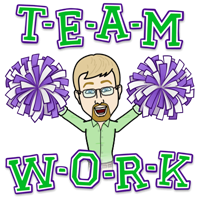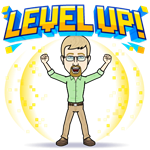View source or report issues on GitHub
Welcome to IB Computer Science

What is this course about?
Computer science is the study of computers - how they work, how they think, and how they interact. In this course we will work together to learn lots of CONTENT about computers, as well as work to develop the SKILLS that come with thinking computationally; problem-solving skills that can be used to make computers work better and smarter.
Working as a Team
 The computer software and hardware you use today is the result of teams of experienced and motivated people, working together, to create commercially viable products. Much of the programming work you do in this course, especially in this first year, will involve working with other students face-to-face and also expanding upon existing computer programs written by other programmers. The year will culminate in work toward your individual IA, but to get there you need to be ready to work with, and trust, others. We will spend at least some time every single day in study teams, which will be changed occasionally; sometimes randomly, sometimes not. Please be ready for that, and embrace the chance to learn from different people.
The computer software and hardware you use today is the result of teams of experienced and motivated people, working together, to create commercially viable products. Much of the programming work you do in this course, especially in this first year, will involve working with other students face-to-face and also expanding upon existing computer programs written by other programmers. The year will culminate in work toward your individual IA, but to get there you need to be ready to work with, and trust, others. We will spend at least some time every single day in study teams, which will be changed occasionally; sometimes randomly, sometimes not. Please be ready for that, and embrace the chance to learn from different people.
Assessments

Formative Assessments
In addition to the casual, non-tracked formative assessment I do regularly in class, some of the formative assessments that will be tracked (and required for reassessment) include:
-
Flash cards, digital or physical, for key ideas. These are required and will be regularly used in class, getting feedback from me and each other about their quality.
-
Formative programming and analysis assignments will be assigned for work in class and at home. These will range from small single-day assignments to large multi-day problems. These will be managed using an online platform called Github Classroom.
-
Daily or near-daily quizzes (no more than 8 questions) will be used to prompt memory about readings
As the year progressess, additional styles of assessment may be added.
Summative Assessments
Matching the style of the IB exam, there will be both written TESTS that assess skills and content as well as long-term PROJECTS that require detailed write-ups and explanation.